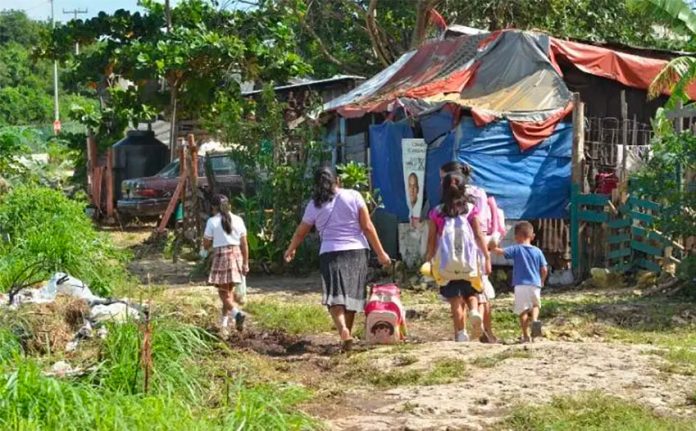Human rights activists warn that the coronavirus epidemic has deepened poverty and inequality for vulnerable sectors of Mexico’s population, including indigenous communities.
During a May 2 virtual forum organized by the group Citizen Action Against Poverty, a number of regional participants described their concerns for the communities they serve, and measures they are taking to address current and future challenges posed by the coronavirus pandemic.
Jeannette Arriola, founder of indigenous rights group Pro Zona Mazahua, said the health crisis has further limited indigenous communities’ access to health services and food.
Her organization, which operates 13 health centers in Chiapas, has been overwhelmed, serving more than 1,000 patients in the last several weeks, a number they typically see in an entire year as government health systems are failing them.
The Pro Zona Mazahua clinics provide general health and dental care but also monitor for coronavirus symptoms. Those patients are sent to other health institutions.
Arriola also noted that the pandemic has exacerbated the lack of access to running water. Most of those she serves collect rainwater for basic needs. “Everyone says ‘wash your hands and wash them well,” but in these communities, with what water? With what soap?” she said.
Pro Zona Mazahua is collecting food, masks, personal hygiene and cleaning products for families in the community where she works, as well as guaranteeing them access to health clinics.
Malcom Aquiles of World Vision Mexico, an organization whose “Fields of Hope” initiative focuses on the sugar cane and coffee fields of Veracruz and Oaxaca, said that the epidemic has forced them to rethink their aid strategies and awareness campaigns.
His organization has increased its focus on agricultural, day-laborer families and preventing a possible increase in child labor due to the coronavirus pandemic. He warned that in the coming weeks he expects the number of minors working in the fields to skyrocket, as will poverty, malnutrition and violence, including sexual violence against children and adolescents.
Patricia McCarthy of the Yucatán Family Civic Front said she is working with citizen groups and business organizations to help feed the poor. For months, she says, they have placed shopping carts outside supermarkets where people can place donations, which are then taken to a collection center, sorted by volunteers, and distributed in coordination with municipal and local governments.
One generous donation amounted to 1,000 kilograms of pork.
One of the measures taken by The Hunger Project México, a non-profit that works in highly marginalized communities, is making sure information on coronavirus precautions and sanitary measures is made available in the indigenous languages of the populations they serve, said Roberto Baeza.
Forum participants are asking all levels of government to channel their efforts to help those in need with food, health care and information on how to stay safe during the coronavirus pandemic.
They agreed that President López Obrador’s familiar refrain of “the poor first” is not enough if public policies are structurally inadequate.
Source: Reforma (sp)
